The Crude Truth is a policy junkie’s dream! I got the chance to sit down with two great guests:
Dr. Dean Foreman (Chief Economist for the Texas Oil and Gas Association) and Chris Hosek (Principal with Texas Star Alliance Energy Solutions) to discuss all things energy policy, geopolitics as it relates to energy, and the broader economic implications of our current energy policy trajectory.
Learn why what you hear from the media might differ from the data, what some of the largest energy policy questions within the great state of Texas are, where innovation truly comes from, and touch on the importance of LNG to both Texas and the US.
We are all better when the US plays a forward role in energy security and THATS THE CRUDE TRUTH!
Highlights of the Podcast
02:17 – The oil and gas industry
03:06 – The Republican ticket
05:28 – The real data and then what the media said
07:33 – The world business development
08:43 – The legislative process?
10:06 – The relationship to the value chain
12:42 – The price of natural gas
16:27- The largest in the world balance supplying these states
18:00 – The policies that Texas really needs to have?
21:17 – The source of innovation and growth for the market
25:23 – The vision of where all this can go
27:31 – How much of that exported US LNG
30:10 – The loss of these Russian supplies
33:52 – The diversification of the economy over time
Please reach out to Dean Foreman on LinkedIn
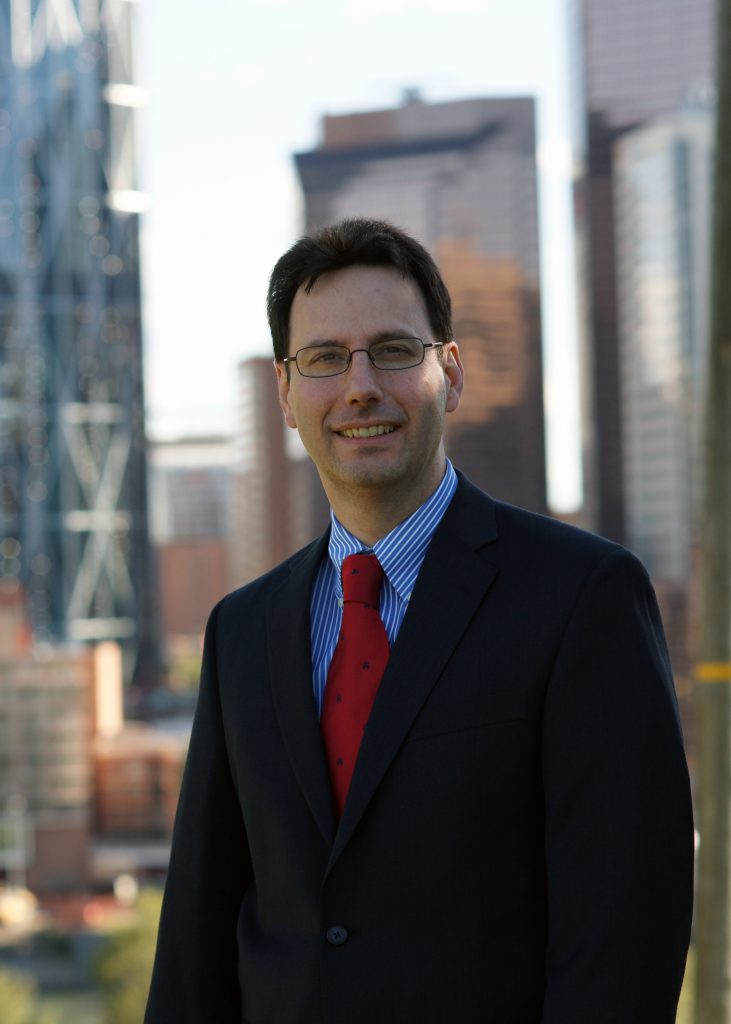
Please reach out to Chris Hosek on LinkedIn

Check out StatusJet HERE
THE CRUDE TRUTH Ep. 85 Dean Foreman and guest host Chris Hosek
Rey Treviño [00:00:00] As we continue into 2024. We speak to a chief economist on this episode of The Great Truth.
Narrator [00:00:07] In 1901, at Spindletop Hill near Beaumont, the future of Texas changed dramatically. As, like a fountain of fortune, thousands of barrels of oil burst from the earth towards the sky. Soon, Detroit would be cranking out Model TS by the millions and America was on the move. Thanks to the black gold being produced in Texas now, more than a century later, the vehicles are different, but nothing else has truly changed. Sure, there may be many other alternative energy sources like wind and solar and electric. But let’s be honest. America depends on oil and entrepreneurs. And if the USA is truly going to be independent, it has to know the crude truth.
Narrator [00:00:50] This episode is brought to you by LFS chemistry. We are committed to being good stewards of the environment. We are providing the tools so you can be too. Nape Expo where deals happen. Air compressor solutions. When everything is on the line, Air Compressor Solutions is the dependable choice to keep commercial business powered up. Sandstone Group exec crew. Elevate your network. Elevate your knowledge. Texas Star Alliance, Pecos country operating. Fueling our future.
Rey Treviño [00:01:24] Well, hello again and thank you, as always, for tuning in to another episode of The Crude Truth. I am your host, Ray Trevino, and today we’re shooting again from our great Austin studios down here in the wonderful downtown of Austin, Texas in Central Texas. For those of you that don’t might not know where Austin is. As we are moving into more of 2024, we’re almost at the halfway point of the year. And really, the real question is, where’s oil and gas going? As we all know, the prices are continuing to fluctuate. And also the supply rumors are going from we’re going to have too much in 2025 to 2 little in 2025 or 2025. So we really got to tackle some big questions. And today, in order to help me tackle those big questions, I brought on another amazing co-host, somebody that, I’ve had on the show before, somebody that is literally making changes to help not only the oil and gas industry, but helping the average American. I brought on our guest today, managing founder of the Texas Star Alliance, Chris Hosa. Chris, how are you?
Chris Hosek [00:02:26] Good, right. Thanks for having me on today.
Rey Treviño [00:02:28] Oh, well, thank you so much for coming back. And thank you for co-hosting today. You know, I have I’m just so excited that you’re here.
Chris Hosek [00:02:35] Well, I appreciate that. You know, it’s been an interesting two weeks in Texas. Last week, as you know, we did have our, primary election on Super Tuesday with some really interesting results across the state. I mean, really surprising. No. One Donald Trump won, outright for the presidency. And, really important to this podcast and very, interesting election result as Chris Hosek managed to stave off for offenders, for opponents and, hung on without a runoff. So, you know, Commissioner Chris Hosek will be running in November on the Republican ticket.
Rey Treviño [00:03:07] Yeah. Well, you know, you mentioned that. I mean, she I mean, she didn’t, but I didn’t think you, somebody had to win, because we with five people on there, you would have thought she would not quite have gotten that 30%, but she was able to get it. But I think it’s also a testament to what she’s doing within the railroad commission, that people are actually understanding how valuable she is to what they’re doing.
Chris Hosek [00:03:29] All right. I think you’re absolutely right. I mean, the strength of her candidacy shows in the election results. I mean, if you were to go back and look, historically, when you have multiple candidates for a railroad commission race, they almost always end up always end up in a runoff. So for her to come out, clean with a strong victory, in my opinion, says a lot about her actions at the Railroad Commission as well.
Rey Treviño [00:03:50] Well, you know, that leads me to today. And our guest, you know, wanted you to come on because you just understand so many more ins and outs. As you know, I’m just I’m an operator. I. I draw oil wells for a living. But you are here fighting the good fight, and there’s another group out there, that, individuals in companies like Paco’s, definitely sponsor and, are part of. And that’s Texaco Detectives Oil and Gas Association. And with us not really knowing everything that’s understanding of the oil and gas industry. And how do we have enough world? Do we not have enough? Where do we see prices going? Well, I brought you know, I asked our our friend doctor Dean for me to come on. Dean, how are you?
Dean Foreman [00:04:30] I’m great. Right? Yeah. So.
Rey Treviño [00:04:32] Well, thank you so much for coming on. You have just been. I mean, you’ve been all over. You’ve been doing the tour this year so far. And, I mean, everybody wants to know because you are the chief economist over at Tech Soldier. And I finally said that, Ryan, I feel like I could take chief economist to save my life. And so a few minutes ago, how are you doing? What’s going on in your world?
Dean Foreman [00:04:52] Doing? Well, it’s fun, nonstop, and we’re off to an exciting year.
Rey Treviño [00:04:54] So it’s been very exciting. And you know what? What is one of the things that you’ve seen so far? This year that just has caught your eye, that it’s really made it the way it is.
Dean Foreman [00:05:03] Well, it’s a diversion going into an election year. Politics, right? You don’t win elections by making people complacent. You have to energize your base. And that means some people have to be satisfied with where they are. Others have to be dissatisfied. So try to demystify the media take and the political angles from the actual data has really been. Yeah, the challenge is stay the course on all of that.
Rey Treviño [00:05:25] You know, real quick. I love how you said to take the real data and then what the media said, and that was something that I actually use in a speech a couple of weeks ago. It’s like if you look at the real data, you know, oil and gas is doing one thing while the media is doing another. And I was using the example of the late of the mid 80s when everybody was like, oil and gas is done. We get that $5 for the first time. But yet the oil and gas companies were still doing so well and nobody could figure it out. But the media was saying oil and gas is done. Oh, that’s why I asked you to come on, because your journey to Austin is one that it’s just been, one heck of a journey. And you know something? Me and Chris were talking about the pre-meeting a little bit. And so I’d just like for you to kind of tell everybody why you are a doctor and a chief economist and the only gas base.
Dean Foreman [00:06:12] Thanks. My journey has been a long one. It’s been around a bit. I grew up in Florida. I went to the University of South Carolina undergraduate mathematics and economics, and then came back to the University of Florida for both master’s and doctorate and specialize actually more in micro and regulatory economics and econometrics, those sorts of things. I worked seven years in the telecommunications industry, a lot of regulatory policy things at the state level, forecasting again econometrics and using it, and then was recruited to Exxon Mobil in Dallas. I had been in Dallas, then with BOQ, became Verizon and became the Economist in corporate planning for a half dozen years from 2002 to 8. And it was this nerve center which really great colleagues of everything through the entire value chain, a lot of global international macroeconomics, energy modeling, Stanford Energy Modeling Forum, it was fascinating. It was really eye opening. And this is an industry that’s data rich. So the modeling skills, it really fed. And I left it to move up in the sideways in that culture. So I became a treasure in the upstream dumb Houston for a couple of years. And then was recruited to Canada as part of the executive team for Talisman Energy. Got to work with John Manzoni. I, did that for four years in Calgary, traveled all around the world business development, corporate planning, but really hands on for the upstream. And that part of the business then came back to the United States in 2013, but switched the downstream side, started working with a partner on and ethane cracker derivatives complex also playing gas to liquids. So really cool running the risk management for Sasol North America. After that, I transitioned, became chief economist for a hedge fund for a couple of years, joined Saudi Aramco after that, and was in Saudi Arabia for about a year, and then the American Petroleum Institute. So the last five plus years before I’ve come to tech. So I was, in Saudi Arabia, excuse me, with the American Petroleum Institute as their chief economist, Washington, D.C. so five plus years there.
Rey Treviño [00:08:24] That’s a heck of a journey.
Chris Hosek [00:08:26] It is a it really is an incredible story. You know, you mentioned your DC experience as of late. And, you know, I would say welcome to Texas, but you’ve been in Texas a long time. But we’re glad to have you back. Can you talk a little bit about the differences between operating in DC in this space and then operating here in Texas in the space and the legislative process?
Dean Foreman [00:08:44] Chris, thanks. It really is night and day because Texas is about the business and the stakes really hit here. So both the data and filling in the gaps that really matter here and the politics of the state are sincerely aligned. And to try to advance the interests of the state in DC, it becomes much more political just by the nature of there’s so many more issues. It’s at a federal level, and you’re fighting in a different arena depending upon the administration that you’re in, each and being more or less aligned with where the industry stands. But so same fight, different level of fight, different level of granularity. And here you have to be willing and able to go local. So the data orientation are really getting down to disaggregating. What’s the local impact. You know, how much are you paying in taxes? What’s the GDP impact? The jobs, the wages, all the way down to the zip code and county levels. And that’s actually something I love, is being able to go down to those local levels, because it gets back to the state regulatory where it’s and talk about the impact, the positive impact in terms of developing communities, the impact through the value chain and the importance of these seemingly macro issues and the way they’re laid out. When you’re really looking at things that seem like they’re just trade or international related, bringing that back home and actually seeing the relationship to the value chain, it’s really important.
Chris Hosek [00:10:09] And I think that’s an amazing, bit of data you offer for are elected officials here where they can look and see how many employees are in their district or the local, the impact the taxes have in their district. You know, in, in Washington DC, you kind of talked about the disconnect, and it’s more a political space. When you when you come in Texas and you and you look at the difference between the things you were talking about, would you think that that type of information would be valuable in Washington, D.C.?
Dean Foreman [00:10:38] It is when you reach the representatives, some help them understand how they are accountable back to stakeholders and remind them of what’s something district because what’s who in the pressure of going with the party on many of these notes at the federal level, it’s really that tension of reminding them just how important some of these issues are. The recent issue of the Biden administration’s pause on New York World strategy expires at the end of January. That’s a great example where, you know, it just kind of went along Partizan lines on and off it went. But that has a really bipartisan feel towards something that is just universally bad policy. It’s bad for allies, it’s bad for economic development, and people think that it doesn’t have a lot of consequence near term, because many of these approvals are often things that might get built in the next 3 to 6 years, but they don’t realize that it really affects corporate planning decisions in terms of scale economies, shared services, everything from power, ports, jetties, you know, it’s in the weeds, but these are real things that decide what investment dollars get put in the ground today for the shared services that plan for the future. And what he anathema thinks about this is that the federal government is throwing all these subsidies at tried to create a carbon economy. Right. Well, many of these projects that are getting delayed would have been carbon capture ready and would have fed gas. They get built into this. But do you spend capital, do you invest in something that would then have synergies with the carbon economy? So it’s sort of one hands working for, one hands working against. And the policies really aren’t coordinated federal up.
Rey Treviño [00:12:20] Many that I mean the way you were able to just tie that in. And I mean, I love how the data that you’re bringing into the table at the state level. But then you just talked about that LNG. I mean, that was a that was a real big deal. And I saw it as one because it’s like you like you said, we’re trying to invest dollars today or tomorrow and down the road without these permits right now, you know, the the price of natural gas has just continue to drop, because, as you know, I mean, we’re drilling so many wells in West Texas that we do have an abundance of natural gas, and yet we can’t, you know, get rid of it as much right now. So I just really think what you’re talking about is really hitting home. But, on so many aspects, I, I really appreciate that.
Dean Foreman [00:13:03] Thanks, Ray. And let’s be clear. This is a $200 billion issue just for Texas and Louisiana. And it’s been miscast to some extent because just the terminals themselves are 50 or $60 billion of capital. Okay. Then you have pipelines and processing. And the thing that is the most consequential here is the 9,000,000,000 cubic feet per day of natural gas that will be exported, some from Louisiana, some directly from Texas. A 60% of the gas disposition coming from Louisiana actually comes from Texas. So this is a 20% increase in Texas natural gas production that hangs in the balance of these approvals, 20%. And if you want to expand the whole of natural gas production in Texas by 20%, that’s 130 billion by, by itself, build up this drilling program. So infrastructure it and think of the jobs that go with that and the wages. So this is a really big deal. The fact that Ferc and D.o.e. are not going to be approving these projects.
Rey Treviño [00:14:04] Wow. This is tense.
Chris Hosek [00:14:07] So so not only are you the, chief economist at Texaco, you are also the president elect of, the US Association of Energy Economics. Correct. Had title. Right. Okay. So you’re as you move into the presidency, how do you see that position helping out? Not just only eating energy in general in the United States, but, in particular in Texas.
Dean Foreman [00:14:31] So the U.S. and International Association for Energy Economic System, you know, one of the mainstays of economists in the industry through all forms of energy, not just oil and gas, you know, renewables, nuclear, you have, but really thoughtful energy research. So academic quality. So you’ve got academics, government, industry all working together in this West and that. Association being able to contribute to it, have a coalition to hopefully bring the conference back to Texas. The annual conference is really the pinnacle of what the association does each year. That enables us to have a dialog, but also have a presence and continue to advance energy economics and the measurement of it at a really good level. Measurement is one of the things that I think for economists is kind of, over the years fallen by the wayside with data analytics. It’s come back to the fore and we have different sides where on one hand, we really need to measure things at a local level, and Texas should have good measurement attacks. Oga, this is one of the things that I’ve tried to build up, is the data measurement side on the petroleum and the natural gas value chains are building up, and these are data that we’re now producing that haven’t existed before. So you would think for a state like Texas, if you wanted to know how much was traded in a given month, you can go to the International Trade Commission and go to the EIA. They get what are call pad level or regional level estimates, but to actually get how much was imported, how it was transformed, how much was exported along the way, and go through and understand exactly where this is really important, because we understand now the nexus between what we’re producing contribution of natural gas liquids that are quietly become this. It’s extracted from the natural gas through. Yeah, but but it contributes to the liquid supply. And we are the largest in the world balance supplying these states.
Rey Treviño [00:16:29] Yes.
Dean Foreman [00:16:30] This and the trade of it and the transformation of A to the petrol sector has had a huge impact for Texas and for Louisiana, especially for Texas. And the data have just not been put together in a cohesive way. So I think for inside baseball stuff, it’s really exciting to be able to get a complete picture and talk about what that’s meant for Texas, for Texans, the jobs, the wages, the impacts for the account.
Rey Treviño [00:16:55] You know, you’re talking about how a tech so you’re getting excited for all this data, for those out there that may not know that much about Texas, Ohio. Can you can you talk about Texas over and what you guys, you know, are doing on a daily basis to help out with you only gas industry and the small independents out there?
Dean Foreman [00:17:12] Absolutely. So in the state, we’re a trade association that represents the only trade association, represents 90% of crude oil production and the vast majority of the refining capacity in the state through so through the entire value chain, midstream pipelines, processing, LNG exports, all of it. So it’s an all in membership that represents all of the oil and gas interests across the state. And we work in legislative policy, regulatory policy. We’re working extensively with Ercot, water and environmental issues, everything that guards the social license to do business to start with, but really working proactively to try to have good policy going forward. So when we look not just today but for years ahead, what are the policies that Texas really needs to have? Sound energy policy, energy security and energy economy that works both for the state and the US? Well.
Chris Hosek [00:18:11] Yes. That’s big. You know, you talk about measurements and you’re an API when a really interesting what we would call a measurement happen. It’s where we started growing oil production in the United States to where we were no longer a net importer, better net exporters. I’m. It happened so quickly. It seems to me in terms of energy production, I know it took a dozen years, but in Washington, D.C., I’m and I’m going back to your time at AP. How was that taken in? How was that received there? It seems like there was a lot of disbelief at some point from my perspective, that some elected officials still wanted us to be in that zone where we were vulnerable, but now we’re in a more stronger position. What was that like in DC to see that transformation?
Dean Foreman [00:18:58] It was really interesting that legislation that made this happen passed slightly before I got there. So at the end of 2015, that crude oil export ban in the United States was lifted. And I think of the way that went through with a lot of resistance, it became, you know, at the end of 2015, in very short order. It was basically legislation that that rushed through that enabled this export ban to be lifted. And up to that point, we could export refined products and with some exemptions you could some things to Canada, Mexico. But by and large, you couldn’t export crude oil. And since then it’s been a and we see this on the natural gas side as well. When you have expanded market access, it fosters people to step up to get access to that market. So they invest, they invest the production. And that has had a feedback effect and productivity. And we seen this where the ramping up exponentially of crude oil exports ramped up the supply in the United States. We saw that grow over several years. We saw it have a material impact and putting downward pressure on global prices, not just U.S. prices, really. And by 2015 and 16, this flood of oil now coming to the market really changed the way, at least for a period, OPEC was behaving. And we’ve gone through fits and starts in this where they they’ve dialed back. And you know, we’ve seen some cyclicality in our industry. And right now we’re in a period where the US has continued to be you know last year the US was 60% of global oil growth even still. And it was some smaller producers, whether it’s newborn or endeavor, others that have stepped up, you know, independence, still carrying the day in terms of productivity and development in West Texas, the Permian Basin, they’ve really led the nation in this kind of growth. So it’s been a resounding story that’s been made possible by the policy change that had the foresight to see that global market access would grow the market and grow the pie for everybody. And that sometimes gets mixed with isolationist policies that say, nope, we should just trap these hydrocarbons at home. Just keep the energy for ourselves. That really isn’t what has been the source of innovation and growth for the market. And that’s a key lesson to be learned going forward for in ship policy.
Rey Treviño [00:21:24] You know, when you talk about that now, here we are, a large producer of oil and gas. One of the things that you know, I notice is our rig count is still over 100 down than it was this time last year, and we are now a large exporter, you know, that, we’ve actually, under this administration, you know, we’re producing more oil than we ever have. You know, some people are saying that we will see an oil shortage, but then you’ve got other groups, I think like the idea and, you know, the fact check vehicle, not 100%, but that are saying, hey, we’ve got a glut and in 12 months or 18 months and, you know, what do you say? And where do you see that going?
Dean Foreman [00:22:03] Well, first, the IEA has an energy and today piece out today. And I think it’s worth recognizing we’re producing more oil than any country has ever I mean, this is the most oil any country has ever produced. And we’re doing and it’s thanks to Texas that this has happened, you know, 5.5 million barrels per day just out of Texas, out of the 13.3 million barrels per day that the U.S. is producing. So that’s a huge milestone to celebrate. As far as the politics of this, you know, look, if we take the EIA, the U.S Energy Information Administration, the IEA, the Energy Information agency that’s based in Paris, that you mentioned other credible sources internationally, a think tank based in Saudi called Cap’s Arc. OPEC itself, which is a thoughtful think tank. And you look at the range of these forecasts. The only thing they really agree on is that this year and next year, we’re going to be at record levels, both for the economy, its size and the amount of oil that’s needed globally. Demand is at record levels and growing and likely to continue growing at these record levels and setting new consecutive levels this and again next year. Now the amounts that they forecast OPEC, as you can imagine, has the most bullish view on that. The IEA actually has the most bearish view on that and the IEA is somewhere in between. The IEA this year is expecting global growth of about 1.2 million barrels per day. So that’s a little over 1% of the market. Yeah. The global economy roughly speaking, is growing on a market exchange rate basis at about 2.5%. So that is consistent with the rule of thumb by the way of divide by two, you know, 1.2 million barrels per day. Check. Yeah. So it jibes with historical relationships. And it says that post-pandemic, the global economy has continued to need oil very much the way it has in the past. It’s integral to both developed and developing economies the transportation, industrial uses. And as the economy grows, everything that everybody wants, the consumer goods that are made up in the materials, the molecules themselves very much start as oil and gas, 96% of consumer goods being made up of oil and gas in some way, shape or form. This is what people can’t forget. You can’t wish it away. So as we go into politics at energy transition talk, the fact that this continues to grow and people make the point with coal often they say, look in the global energy system. Yes, coal has lost share, but we consume more coal globally than we ever have. This also continues for oil and gas. So we need to be pragmatic about making good energy policy that sound in an economic sense and energy secure sense at the same time as we pursue environmental progress, which is vitally important, by the way. But we can’t wish it away. And we don’t do it by stopping progress or wishing that something didn’t exist. We have to recognize the fact that there’s an economic cost that goes up mis allocating resources, so to speak, and we need to really have some energy policies to make sure this is going forward. Texas has the highest stakes of any one in the U.S. for this. We need to continue to hammer home that our jobs, our economy, and frankly, the vision of where all this can go, because we can be part of the solution, not just the problem, if you will, in solving these things from an urban standpoint.
Chris Hosek [00:25:32] And so when you’re talking about exports, again, if we could just dial this back and I think it was really interesting. You just kind of hit on an interesting point. It’s not just impacting, you know, United States or Texas and the Gulf Coast when we talk about LNG exports. But other countries that are developing, developing these facilities to take in the natural gas, right. So think of like a Vietnam looking to develop their natural gas. How big of an impact is it, our ability to export on some of these other countries around the world?
Dean Foreman [00:25:57] Well in the last couple of years, since Russias war in Ukraine kicked off, about 70% or more of our liquefied natural gas exports have been going specifically to Europe, and it’s backfilled the whole, and geopolitical influence that Russias exercised over European gas. Europe literally lost 30% of its supply during that period. But before that, really the majority of this went to Asia, and it is Vietnam and Bangladesh and China, Japan and Korea as the traditional liquefied natural gas consumers. Those markets continue to grow, and that supplants coal in power generation. Every bit of LNG that goes there really is coal thats not getting burned otherwise. So that makes a big difference. Environmentally, it is important to the value chain, the affordability of gas. That has historically been one issue and the other is security of supply. And in defining the long term contracts, both from a European and Asian perspective. If youre going to place these this kind of natural gas into Asia’s security supply is historically been one of the main contractual considerations that go with it. And thats where we come back to. This LNG pause issue is both in Europe and in Asia. Its cast aspersions on US suppliers of are we as reliable as as we say we are because if if we can’t continue to grow and commit to reliable supplies, then that undermines security of those contracts.
Chris Hosek [00:27:29] Yeah. And on that note, how much of that exported US LNG is from Texas on a percent wise percent basis?
Dean Foreman [00:27:37] So, if the US exports close to 13 and total roughly nine or so is coming out of Texas, and that might be out of both Texas at Port Arthur, Louisiana kind of ports in the way the U.S. International Trade Commission defines the export zones for Texas. But its a lot. And if you go for facility specific, it it can be slightly lost. But basically, you know, 88.78. 9,000,000,000 cubic feet per day consistently last several months coming out of Texas.
Chris Hosek [00:28:09] So Texas, Louisiana, the leader by far.
Dean Foreman [00:28:11] By far, and almost another 6,000,000,000 cubic feet per day, by the way. So going straight by pipeline to Mexico and that’s another source.
Rey Treviño [00:28:20] You know, keeping it with this worldview and with liquid natural gas and the fact that you work for Saudi Aramco, you know, the Middle East said they’re going to start ramping up their natural gas. And I find that interesting at a time when we’re, you know, we got those permits that we can now have. Do you see that in making an impact in the near future at all, the fact that they might be able to pull some more natural gas out?
Dean Foreman [00:28:45] It can, but again, this comes down. And you’re referring specifically to Qatar. Yes. That saying that it will step up and provide some more transit. And think of it this way, Qatar monetizes the same gas reservoirs are. Right, okay. That they share it. It’s really a race to monetize it on the other side of it. And historically they’ve been able to tap more into it, export more LNG. And it becomes sort of a credible threat of, well, I’ve announced I’m going to build gas, so therefore you won’t build. We need to see what actually gets built. Okay. People don’t necessarily. You know, historically Qatar was the home of trying to set up no OPEC to set up a cartel for natural gas. And they were the ones that led it trying to get beat. Apparently pricing the highest pricing for natural gas. That’s energy equivalent with oil, you know, $16 million BTU at that point. And today we’re sitting, you know, in Europe with maybe six, $7 4 million a year, and in Asia 8 to $10 per million BTU. So despite everything, with the disruption to Russian supplies, thanks to U.S. supplies being exported, the world market is well supplied for LNG. This is remarkable. Yeah, because we’ve had it. You know, it’s a little bit warm, but it’s been a somewhat normal winter that we’ve gone through. And despite the loss of these Russian supplies, the global gas market has worked really well here. And this sense that we need to continue to grow this in a way where we’re not getting cartel in it. The U.S. influence has helped keep energy affordable and make environmental progress along the way.
Rey Treviño [00:30:27] You know, when you talk about how we continue to produce and, you know, I’ve been watching the price of oil, obviously, that’s kind of what I have to do on a daily basis. You know, we’ve really only fluctuated $10 for the last, several months. And some people are saying it’s because we are producing as much as we are on the world stage, that we actually are fighting against those roller coaster prices for what you agreed to. So that statement that people have said.
Dean Foreman [00:30:56] I mean, in general, that’s true. I mean, you know, I think you’re referring to oil when you say kind of $10 fluctuation. Yes. And I mean, it is pretty amazing. And we were talking before about all the geopolitical. Issues that are out there right now and how whether it’s transport through the Red sea or other things that have come with conflict, specifically in the Middle East. We still have some $90 to $80 per barrel oil. Yes, that’s pretty remarkable.
Rey Treviño [00:31:20] Yeah. It’s one thing that I told somebody the other day in interview, I was like that, like, can you give me a price? I said, no, I said everything that should have happened. We should be up 15, $20. But, you know, it hasn’t happened and it’s just due to our production.
Dean Foreman [00:31:33] But if the U.S., if we had a hurricane come through that disrupted supplies, you would see a pretty big price impact, likely in a short period, because the U.S. is so important to supplying global supplies today. Wow.
Rey Treviño [00:31:47] And its actual supply is also there.
Dean Foreman [00:31:50] Well, Texas is again, five and a half, roughly a million barrels per day are 13 that were that were producing in total. And it’s a big part of the exports.
Chris Hosek [00:32:00] It’s amazing if we bring this back a little bit to Texas, I just want you to expand on something, you know, at the Capitol during our legislative session, numerous organizations have their day at the Capitol. It could be County Day at the Capitol. It could be City Day at the Capitol. I think you guys at Texas going to do something very unique. You do an energy day at the Capitol, where you bring in a lot of companies and kind of the crust upon that. It’s the data you guys produce at. So saying this is, as you talked earlier, this is your local impact on the district. Could you maybe talk just a little bit about the importance of Energy day at the Capitol and who all shows up?
Dean Foreman [00:32:34] Well, it is really important because we celebrate the fact that, we have members representing a bunch constituency and companies. It brings together the importance of the entire value chain. And then we’re serving up our annual economic review at the same time, and going through the data that really show that shipping jobs and wages impact at a local level. We’re getting even more granular with that. You know what? We can do the multiplier effects at a localized level. We can look at the top producers by specific areas, the top employers by city specific areas. And this is empowering because it enables then representatives to say, you know, I’ve got an issue, I know who to call now, and it’s not talking in the third person. You really have a direct relationship back to the people that are being directly impacted by many of these issues. So being able to highlight that, being able to celebrate it and being able to put a milestone where we’ve got $26.3 billion of taxes paid in Texas, a record high, we’re contributing to GDP in the state some $360 billion directly. These are huge numbers. And it’s not that they can’t go higher, but we really need to celebrate the fact that we are contributing, despite the diversification of the economy over time, really contributing in an integral way. That’s been important to Texas.
Chris Hosek [00:33:58] Right? And that’s an amazing event I’m participating in several times, and it’s hard to believe that the session is less than a year out. It is. So, when you guys organize the day coming up, please let Ray know. I know he’d love to publicize this and go, you know, be another outlet to get this message out for you guys.
Rey Treviño [00:34:15] Yeah. No, I mean, to what you guys, again, are doing is just so important. And, you know, one thing I do hear all the time is facts are friendly. Well, data is facts. And if you’ve got the facts that there’s nothing else you can do except throw them on the table and be like, hey, this is what we’re doing. And what you guys are doing at Tech Soldier is just remarkable bringing it down because from, you know, county to county, that’s one thing I always say, being a small operator is, you know, we’re in those small towns, you know, we’re using their gas stations that their crews are this and, and that pumps money back into that economy, just like you were saying earlier. It’s like, you know, we’re all putting money somewhere to help boost this Texas economy, which then, of course, I do believe helps the American economy on top of that. You know, I do know, that I do want to ask you one question, but, you know, for people that want to reach out to you guys, you know, doctor Dean, how can they get Ahold of you on the Texas route?
Dean Foreman [00:35:11] They can always go to texaco.org. So Tsonga dawg and all of our economic returns are available to purchase on the website. And they can reach out to me on LinkedIn. I’m pretty open about that. And making sure that whether it’s through Texan, this website or through me, if people reach out and engage on issues, I love it.
Rey Treviño [00:35:30] Okay. And then I want to do something fun with Chris.
Chris Hosek [00:35:34] Right. We’re going to call this the Fast Five. Dean, I hope you’re ready for this. I’m going to ask you five questions. You don’t have to expand. Just a couple quick answers. So number one, what are you reading right now?
Dean Foreman [00:35:44] I’ve been going back through that clash meals. How the world really works. It’s a really great overview of petrochemicals, cement, iron and steel, agriculture and the importance of energy and especially petroleum in that context.
Chris Hosek [00:35:59] Okay, so I’m a little different. What’s your favorite sports team?
Dean Foreman [00:36:02] Florida Gators. Absolutely. Football.
Chris Hosek [00:36:05] Right. Fair enough. Well, you fit well in Texas.
Dean Foreman [00:36:08] Tampa Bay Buccaneers two.
Chris Hosek [00:36:10] Oh, wow. Okay. Fair enough. I’m sorry. Since you’ve been in Austin, what is the favorite, your favorite restaurant you’ve eaten out here?
Dean Foreman [00:36:18] That’s a tough one. It’s somewhere between, blacks barbecue. But.
Chris Hosek [00:36:25] Not about coal.
Dean Foreman [00:36:27] In. There are a couple of.
Chris Hosek [00:36:28] Well, there. They’re great barbecue restaurants here. Yeah. Question number four. What are you streaming right now on TV?
Dean Foreman [00:36:36] I’m loving the Halo series on Paramount+.
Chris Hosek [00:36:39] Okay. I hope my wife hears this because I’m very curious to watch that. And then last question and kind of more interesting about you, what do you do in your spare time? Do you have any kind of interesting hobbies or when you’re not doing well in gas, what do you.
Dean Foreman [00:36:51] Well, I start life, really. I’m a car guy, so I love rebuilding old sports cars. I’m not doing it right now because I’m serving transition between Maryland and Texas. That’s my passion.
Chris Hosek [00:37:04] We should talk off line. That’s our fast. Thanks.
Rey Treviño [00:37:06] Right up there. Well, I, I just cannot thank you again, Dean, for coming on. Chris, thank you so much. First of all, again, for all the work that you’re doing. And thank you for co-hosting today. Gentlemen, would either one of you like to leave anybody with any parting? Yeah. Chris, I do want to ask you this. Yeah? How can people get old Texas style?
Chris Hosek [00:37:25] You can find me online as well. Under Texas Star Alliance. And like Dean, I’m available through LinkedIn.
Rey Treviño [00:37:32] Guys, I cannot thank you all so, so much for coming on, doctor Dean.
Dean Foreman [00:37:35] Thank you.
Rey Treviño [00:37:35] Thank you everybody. Thank you guys. And again, if anybody out there has any questions for any of these gentlemen, please reach out to them. Reach out to me and we’ll see you again on another episode of The Truth.
Narrator [00:37:46] Again, the crew Truth would like to thank today’s sponsors LFS chemistry, Nap Expo, Air Compressor Solutions, sandstone Group, Exec Crew, Texas Star Alliance, Pecos Country Operating, and Real News Communication Network.
Narrator [00:38:06] The easiest way to start your own podcast and TV show. Real News Communications Network stand out from your competition produced streams of high quality social media content. Become a thought leader in your industry. With RCN, you get to be the host. We handle everything else. Tour one of our three locations in Dallas Fort Worth and the colony. Call (972) 402-6333 or visit. Launch a show.com to find out more.
We Want To Thank Our Sponsors Of THE CRUDE TRUTH.
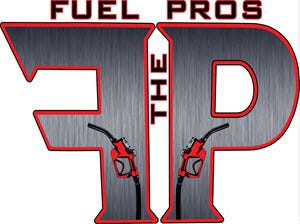
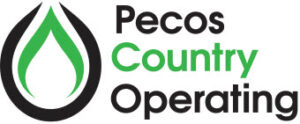
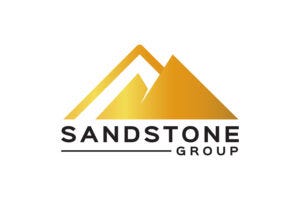

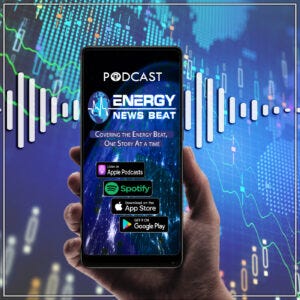

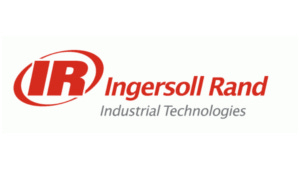
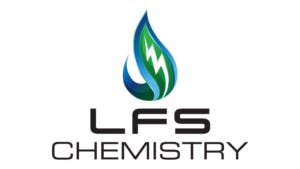
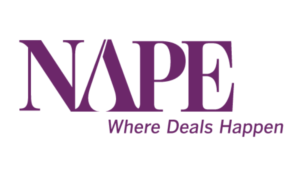

Sponsorships Are Available Or Get Your Own Corporate Brand Produced By Sandstone Media.
David Blackmon LinkedIn
The Crude Truth with Rey Trevino
Rey Trevino LinkedIn
Energy Transition Weekly Conversation
David Blackmon LinkedIn
Irina Slav LinkedIn
Armando Cavanha LinkedIn
